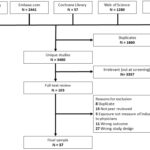Several years ago, trans writer Michelle Coats voiced her discomfort with Lady Cassandra’s portrayal in Doctor Who. In her essay, “Little Boxes Will Make You Angry“, Coats argued that Cassandra’s surgical desires were “directly linked to her villainy” and that she was “intentionally ‘othered’ from the rest of humanity.” Coats concluded that depicting Cassandra as trans offered “nothing positive,” suggesting that if Cassandra were cisgender, it “would completely eliminate anything offensive about her character.” It’s hard to entirely disagree; Cassandra’s actions in “The End of the World” are indeed heavy with gendered undertones that are not flattering to trans women.
However, my perspective diverges from Coats’ when considering Lady Cassandra’s return in “New Earth,” the season 2 premiere of Doctor Who starring David Tennant as the Tenth Doctor. In this episode, Rose and the Doctor respond to a psychic distress signal leading them to a hospital, where they encounter a surprisingly resurrected Lady Cassandra. Cassandra seizes the opportunity to possess Rose’s body and later, the Doctor’s. During this possession, we gain deeper insights into Cassandra’s character, particularly her yearning for a time when she was last called “beautiful,” an event from centuries prior. Cassandra laments, “After that…it all became…such hard work.”
This line resonated deeply and shifted my understanding of Cassandra as a trans character. While Coats criticizes Cassandra’s enjoyment of inhabiting a “male” body – “for a lot of us it’s our worst fear,” she notes – I interpret Cassandra’s body-swapping experiences, both in Rose and the Doctor, as a powerful metaphor. It’s a depiction of regaining a sense of physical embodiment after a prolonged existence devoid of a natural body. This renewed sensation sparks a pivotal moment when Cassandra inhabits a disease-ridden zombie and realizes these vat-grown beings have never experienced touch. This revelation of profound loneliness and isolation strikes a chord with Cassandra, stirring dormant emotions and empathy, ultimately leading her to confront her own mortality. In a poignant resolution, struggling to maintain her cloned host body, Cassandra travels back in time to whisper to her younger self the words she longed to hear: “You are beautiful.”
Viewed through this lens, Lady Cassandra transcends the simplistic interpretation of a transphobic caricature. Instead, she emerges as a distorted reflection of the medical transition journey itself. Her defining traits – selfishness, an obsession with beauty standards, and a desperate need for validation – become exaggerated facets of the anxieties and pressures within the transition process. While Cassandra might embody some negative cisgender stereotypes about trans women, she simultaneously functions as a uniquely trans antagonist, grappling with themes deeply relevant to the trans experience. Looking at Cassandra, revulsion is understandable, yet a strange sense of recognition emerges. The desire for flawless, hairless skin, for example, resonates with the dysphoria many trans individuals experience. The extreme lengths Cassandra goes to in pursuit of physical perfection, while villainous, become a warped mirror reflecting the intense, sometimes all-consuming, nature of body image concerns within the trans community.

